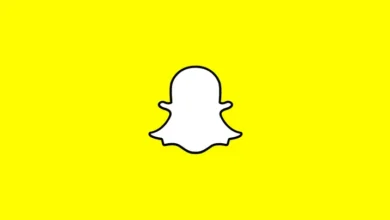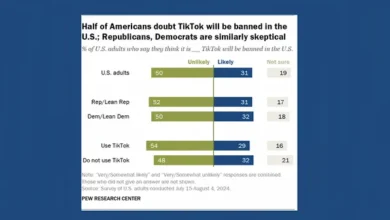
As TikTok struggles to build momentum for its in-stream shopping push, it’s probably not being helped by the steady trickle of reports which suggest that the platform is still sharing user data with its parent company in China, despite TikTok repeatedly claiming that this doesn’t happen.
According to a new report from The Wall Street Journal, based on internal reports from TikTok employees, the platform is indeed still providing U.S. user data to staff at ByteDance, its Chinese parent, even as it goes about siloing U.S. user data as part of “Project Texas”, which it pitched to U.S. regulators as a key measure that should dissuade a full ban of the app.
As reported by WSJ:
“[TikTok] managers sometimes instruct workers to share data with colleagues in other parts of the company and with ByteDance workers without going through official channels. That data sometimes includes private information such as a user’s email, birth date and IP address. Meanwhile, ByteDance workers in China update TikTok’s algorithm so frequently that Project Texas employees struggle to check every change, and fear they won’t catch problems if there are any, the people said.”
Project Texas, which TikTok originally announced early last year, is the company’s billion dollar plan to separate U.S. user data from other elements of the app, in order to reassure U.S. officials that it will not be sending sensitive information back to China, where it could be infiltrated by the CCP.
Under Chinese cybersecurity laws, TikTok, like all Chinese owned apps, is bound by an agreement to share all user data with the CCP on request. There’s no record of any such request being made, but concerns around this element, along with questions about potential interference with TikTok’s algorithmic recommendations, have seen cybersecurity experts repeatedly sound the alarm about the harmful potential of the app.
As a result, TikTok has already been banned on government devices in most Western nations, while the White House is also still weighing a full block of the app, which has seen TikTok’s team repeatedly scrambling to allay concerns. The app even recruited a team of U.S. influencers to meet with Senators last year, in order to make a plea on TikTok’s behalf.
Those efforts seem to provided it a stay of execution, at least for the time being. But concerning reports continue to come through, not regularly, but at a steady enough cadence to keep TikTok in the news.
In February last year, questions were raised around the CCP’s tacit support of Russia’s attack on Ukraine, which saw some segments raise concerns about TikTok’s coverage of the conflict. That even led to TikTok proposing a potential sell-off from ByteDance, as a last ditch effort to avoid a U.S. ban, while more recently, in September, EU officials raised their own concerns about TikTok’s connection to the CCP. TikTok responded with more detail about “Project Clover”, its program to separate E.U. user data.
Even more recently than that, in November, a group of U.S. senators renewed their calls for a ban of the app, due to its algorithms seemingly amplifying anti-Israel and anti-Jewish content.
Despite the ban talking easing over time, the threat remains very real for the app, especially as more concerns like this continue to be raised, either due to global conflicts, or sometimes due to lobbyists working on behalf of U.S. social apps.
Which, as noted, could also be a key impediment to its broader shopping push.
TikTok desperately wants to get more people buying more products in the app, following the lead of the Chinese version of TikTok, called “Douyin”, which now generates the majority of its income from in-app product sales.
And TikTok has reason to be optimistic, given that spending in the app rose to record highs in 2023.
But while there is a clear willingness to spend, there’s also, evidently, some hesitancy, which has limited that activity from expanding beyond creator donations.
Could that be because of the lingering concerns around data privacy, and the potential of your information being used by the Chinese Government?
It’s not clear that this is a key issue for U.S. consumers, but it’s certainly not helping, and TikTok needs to sort out its actual data separation program if it wants to combat such reportage.
Its record on this, thus far, isn’t great, and it could eventually become the thing that stunts TikTok’s growth.
Source link




